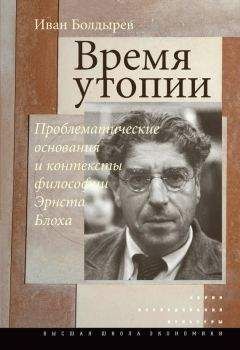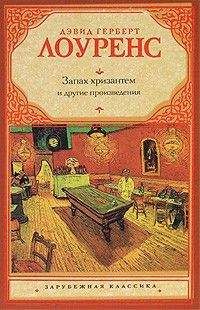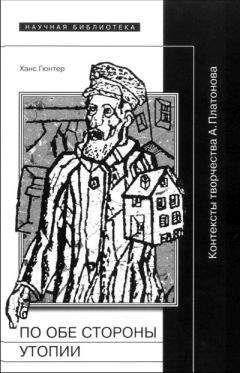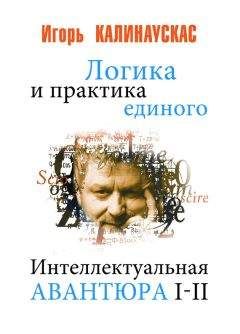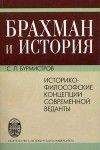Дэвид Лоуренс - Английский с Дэвидом Г. Лоуренсом. Тень в розовом саду / D. H. Lawrence. The Shadow in the Rose Garden
“No good keeping your mind full of scraps,” I answered.
But she had turned aside her sallow, long face, and did not hear what I said. Suddenly again she looked at me. She was searching. And at the same time she smiled at me, and her eyes looked softly, darkly, with infinite trustful humility into mine. I was being cajoled.
“Would you mind reading a letter for me, in French?” she said, her face immediately black and bitter-looking. She glanced at me, frowning.
“Not at all (вовсе нет),” I said.
“It’s a letter to my husband,” she said, still scrutinising (это письмо к моему мужу, – сказала она, по-прежнему всматриваясь /в мое лицо/; to scrutinise – всматриваться, пристально разглядывать).
I looked at her, and didn’t quite realise (я смотрел на нее и не совсем понимал; to realise – /ясно/ понимать, осознавать). She looked too far into me, my wits were gone (она смотрела слишком пристально на меня: «далеко в меня», мои мыслительные способности пропали; wits – ум, разум). She glanced round (она огляделась по сторонам). Then she looked at me shrewdly (затем посмотрела на меня проницательно). She drew a letter from her pocket, and handed it to me (она достала из кармана письмо и протянула его мне; to hand – давать, передавать). It was addressed from France to M. Alfred Goyte, at Tible (оно было отправлено из Франции М. Альфреду Гойту, в Тайбл; to address – адресовать; направлять). I took out the letter and began to read it, as mere words (я вытащил письмо /из конверта/ и начал читать, как простые слова = не вникая в суть). “Mon cher Alfred” – it might have been a bit of a torn newspaper («дорогой Альфред» – это могло быть кусочком разорванной газеты; to tear – рвать/ся/, разрывать/ся/; news – новость, новости; известие; paper – бумага). So I followed the script (поэтому я продолжил читать рукопись; to follow – следовать, идти /за кем-л., чем-л./; следить /взглядом/; script – почерк; рукописный шрифт): the trite phrases of a letter from a French-speaking girl to an Englishman (банальные фразы письма от франкоговорящей девушки англичанину). “I think of you always, always (я думаю о тебе всегда, всегда). Do you think sometimes of me (ты думаешь обо мне иногда)?”
“Not at all,” I said.
“It’s a letter to my husband,” she said, still scrutinising.
I looked at her, and didn’t quite realise. She looked too far into me, my wits were gone. She glanced round. Then she looked at me shrewdly. She drew a letter from her pocket, and handed it to me. It was addressed from France to M. Alfred Goyte, at Tible. I took out the letter and began to read it, as mere words. “Mon cher Alfred” – it might have been a bit of a torn newspaper. So I followed the script: the trite phrases of a letter from a French-speaking girl to an Englishman. “I think of you always, always. Do you think sometimes of me?”
And then I vaguely realised that I was reading a man’s private correspondence (и тут я смутно понял, что читаю частную переписку /мужчины/). And yet, how could one consider these trivial, facile French phrases private (однако как можно считать эти тривиальные легковесные французские фразы личными; facile – легкий; неглубокий, поверхностный)? Nothing more trite and vulgar in the world than such a love-letter – no newspaper more obvious (нет ничего более избитого и пошлого в мире, чем подобное любовное письмо – нет газеты более банальной; vulgar – вульгарный; заурядный, избитый; пошлый, мещанский; obvious – явный, очевидный; банальный, тривиальный).
Therefore I read with a callous heart the effusions of the Belgian damsel (поэтому я читал с недрогнувшим сердцем излияния бельгийской мамзель; callous – мозолистый, огрубелый; черствый, бесчувственный; effusion – излияние; /душевное/ излияние; поток /слов, чувств/; damsel – /уст., тж. шутл./ девица, барышня). But then I gathered my attention (но затем я напряг внимание; to gather – собирать/ся/; скапливать/ся/; постепенно накапливать /какие-л. качества, свойства/). For the letter went on, “Notre cher petit bébé – our dear little baby was born a week ago (ибо письмо продолжалось /такими словами/: наш дорогой малыш родился неделю назад; baby – младенец, ребенок; to bear – рождать, производить на свет). Almost I died, knowing you were far away (я чуть не умерла, зная, что ты далеко), and perhaps forgetting the fruit of our perfect love (и, возможно, забыл плод нашей прекрасной любви; perfect – совершенный, безупречный, прекрасный). But the child comforted me (но ребенок меня утешил). He has the smiling eyes and virile air of his English father (у него улыбающиеся глаза и мужественный вид /, как у/ его английского отца; virile – мужской; мужественный, сильный; air – воздух; вид, выражение лица).
And then I vaguely realised that I was reading a man’s private correspondence. And yet, how could one consider these trivial, facile French phrases private? Nothing more trite and vulgar in the world than such a love-letter – no newspaper more obvious.
Therefore I read with a callous heart the effusions of the Belgian damsel. But then I gathered my attention. For the letter went on, “Notre cher petit bébé – our dear little baby was born a week ago. Almost I died, knowing you were far away, and perhaps forgetting the fruit of our perfect love. But the child comforted me. He has the smiling eyes and virile air of his English father.
I pray to the Mother of Jesus to send me the dear father of my child (я молюсь матери Иисуса = Деве Марии, чтобы она послала мне дорогого отца моего ребенка; to pray – молиться; молить, умолять), that I may see him with my child in his arms (чтобы я могла увидеть его с ребенком на руках), and that we may be united in holy family love (и чтобы мы могли соединиться в святой семейной любви). Ah, my Alfred, can I tell you how I miss you, how I weep for you (ах, мой Альфред, могу ли я выразить, как я скучаю по тебе, как плачу по тебе)? My thoughts are with you always, I think of nothing but you (мои мысли всегда с тобой, я не думаю ни о чем, кроме тебя), I live for nothing but you and our dear baby (я живу лишь для тебя и нашего дорогого малютки). If you do not come back to me soon, I shall die, and our child will die (если ты вскоре не вернешься ко мне, я умру, и наше дитя умрет). But no, you cannot come back to me (но нет, ты не можешь вернуться ко мне). But I can come to you (но я могу приехать к тебе). I can come to England with our child (я могу приехать в Англию с нашим ребенком). If you do not wish to present me to your good mother and father (если ты не хочешь представить меня твоим славным матери с отцом; to present – дарить; представлять) you can meet me in some town, some city (то можешь встретить меня в каком-нибудь городке, каком-нибудь городе), for I shall be so frightened to be alone in England with my child (поскольку мне будет так страшно одной в Англии с ребенком; frightened – напуганный, испуганный; to frighten – пугать; fright – сильный внезапный испуг), and no one to take care of us (где никто о нас не позаботится; care – забота; внимание).
I pray to the Mother of Jesus to send me the dear father of my child, that I may see him with my child in his arms, and that we may be united in holy family love. Ah, my Alfred, can I tell you how I miss you, how I weep for you? My thoughts are with you always, I think of nothing but you, I live for nothing but you and our dear baby. If you do not come back to me soon, I shall die, and our child will die. But no, you cannot come back to me. But I can come to you. I can come to England with our child. If you do not wish to present me to your good mother and father you can meet me in some town, some city, for I shall be so frightened to be alone in England with my child, and no one to take care of us.
Yet I must come to you, I must bring my child, my little Alfred, to his father (и все же я должна приехать к тебе, должна привезти ребенка, моего маленького Альфреда, к его отцу), the big, beautiful Alfred that I love so much (большому прекрасному Альфреду, которого я так сильно люблю). Oh, write and tell me where I shall come (о, напиши и скажи мне, куда приехать). I have some money (у меня есть деньги). I am not a penniless creature (я не нищая без гроша; creature – создание, творение; человек, создание /обычно с эпитетом/). I have money for myself and my dear baby (у меня есть деньги на себя и дорогого малыша…) —”
I read to the end (я прочел /его/ до конца). It was signed (оно было подписано): “Your very happy and still more unhappy Elise (твоя очень счастливая и еще более несчастная Элиза).” I suppose I must have been smiling (кажется, я, должно быть, улыбался).
“I can see it makes you laugh,” said Mrs. Goyte, sardonically (вижу, это вас веселит: «заставляет смеяться», – сардонически сказала миссис Гойт; Mrs. = mistress – миссис, госпожа /обращение к замужней женщине/). I looked up at her (я поднял на нее глаза).
“It’s a love-letter, I know that,” she said (это любовное письмо, я это знаю, – сказала она). “There’s too many ‘Alfreds’ in it (в нем слишком много Альфредов).”
“One too many (слишком много),” I said.
Yet I must come to you, I must bring my child, my little Alfred, to his father, the big, beautiful Alfred that I love so much. Oh, write and tell me where I shall come. I have some money. I am not a penniless creature. I have money for myself and my dear baby —”
I read to the end. It was signed: “Your very happy and still more unhappy Elise.” I suppose I must have been smiling.
“I can see it makes you laugh,” said Mrs. Goyte, sardonically. I looked up at her.
“It’s a love-letter, I know that,” she said. “There’s too many ’Alfreds’ in it.”
“One too many,” I said.
“Oh yes. – And what does she say – Eliza (о да. И что она говорит/пишет… Элиза)? We know her name’s Eliza, that’s another thing (мы знаем, ее зовут Элиза, это другое дело).” She grimaced a little, looking up at me with a mocking laugh (она слегка скривила лицо, поднимая на меня взор с насмешливым смехом).
“Where did you get this letter (где вы взяли это письмо)?” I said.
“Postman gave it me last week (почтальон дал его мне на прошлой неделе).”
“And is your husband at home (а ваш муж дома)?”
“I expect him home tonight (я жду его дома сегодня вечером). He had an accident and hurt his leg (он попал в аварию и повредил ногу; accident – несчастный случай; катастрофа; авария). He’s been abroad most of his time for this last four years (он провел за границей большую часть времени за последние четыре года). He’s chauffeur to a gentleman who travels about in one country and another, on some sort of business (он шофер у одного джентльмена, который разъезжает по странам: «путешествует в одной стране и другой» по какому-то делу; to travel – путешествовать; ездить; ездить в качестве коммивояжера). Married (женаты)? We married (мы женаты)? Why, six years (да уже шесть лет).
